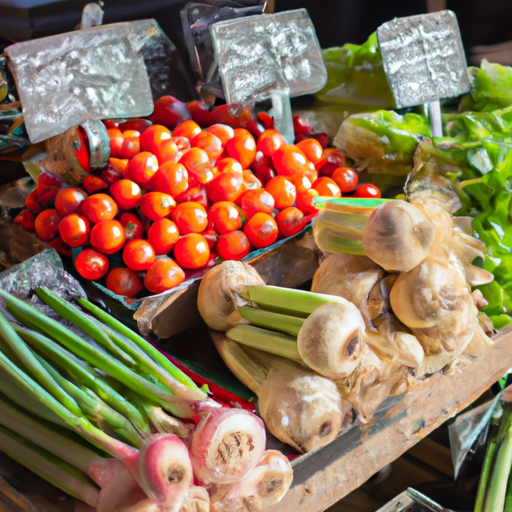The vegan lifestyle is becoming increasingly popular as more people become aware of its benefits for health, the environment, and animal welfare. But is living a 100% plant-based, animal product-free lifestyle realistically sustainable long-term? Let’s take a look at the evidence.
Health Benefits of a Vegan Diet
There is substantial research demonstrating that appropriately planned vegan diets can support healthy living at all stages of life.
- According to the Academy of Nutrition and Dietetics, vegan diets are suitable for all age groups, including infants, children, adolescents, adults, and seniors.
- Vegans have significantly lower rates of heart disease, obesity, diabetes, and certain types of cancer compared to non-vegans.
- Plant foods provide all the protein, fats, carbs, vitamins, and minerals needed for good health. With some planning, vegans can meet all their nutritional needs.
- By avoiding animal products, vegans minimize exposure to antibiotics, hormones, and other contaminants found in meat, dairy, and eggs.
So from a nutritional standpoint, the vegan diet is healthy and sustainable long-term with appropriate planning and supplementation if needed.
Environmental Sustainability
The vegan lifestyle also offers sustainability benefits for the planet:
- Animal agriculture accounts for 14.5% of global greenhouse gas emissions – more than all transportation combined. Avoiding meat and dairy is one of the most effective ways an individual can reduce their carbon footprint.
- Producing plant foods requires far fewer natural resources like land and water compared to raising livestock. 1/3 of the planet’s arable land is used to grow feed for livestock, rather than food for people.
- Raising animals for food generates massive amounts of waste and pollution. Going vegan eliminates your contribution to this.
Researchers have concluded that worldwide adoption of a vegan diet would make the food system significantly more sustainable long-term.
Animal Welfare and Ethics
At its core, veganism seeks to exclude all forms of animal exploitation and cruelty. From an ethical standpoint, avoiding all animal products is the most consistent way to align one’s lifestyle with compassion for animals.
- Each year, over 70 billion land animals are raised and killed for food. Their short, cramped lives are filled with routine suffering.
- Modern factory farming methods maximize productivity at the expense of animal welfare. Even smaller farms inflict pain and discomfort through standard practices.
- Male baby chicks are ground up alive or suffocated in the egg industry. Calves are taken from their mothers so we can drink the cow’s milk. Avoiding all animal products is the only way to avoid complicity in these practices.
For those who believe animals deserve to live free from human-inflicted suffering, a 100% vegan lifestyle is the logically consistent choice.
Practical Challenges of Maintaining a Vegan Lifestyle
While the vegan diet is healthy and ethical in theory, maintaining it in daily life poses some challenges:
- Shopping for and preparing plant-based meals requires more time and planning compared to an omnivore diet. Relying on processed vegan convenience foods can be unhealthy long-term.
- Dining out or at social gatherings with non-vegan family/friends can be tricky. Always having to check menus and ask about ingredients gets tiring.
- Traveling can make sticking to veganism difficult, depending on the destination. Language or cultural barriers may make communicating dietary needs challenging.
- Vegans must plan ahead to ensure adequate intake of nutrients like B12, iron, omega-3s, calcium, and vitamin D, which are less abundant in plant foods. Supplementing is often necessary.
- Some people struggle to adhere to such a restrictive diet long-term and end up having to reintroduce some animal products. Maintaining discipline and commitment can be difficult.
So while the vegan lifestyle is sustainable health-wise and environmentally, it does require diligence, effort, and patience to maintain 100% long-term. Certain individuals may find it easier than others.
Tips for Sticking with a Sustainable Vegan Lifestyle
Here are some suggestions to help make an ethical, environmentally sustainable vegan lifestyle easier to maintain:
- Meal plan – Schedule time to shop for and prep healthy plant-based meals each week. Rely less on processed vegan products.
- Take supplements – Take B12, omega-3, vitamin D, calcium, and/or iron supplements as needed to maintain optimal health.
- Eat fortified foods – Choose fortified non-dairy milks, cereals, juices and other foods to help meet nutrient needs.
- Learn to cook – Experiment with new flavors, ingredients, cuisines to keep mealtime exciting. Sign up for a vegan cooking class.
- Join a community – Having vegan friends and a support network makes the lifestyle more sustainable long-term. Check Meetup for local groups.
- Speak up – Politely discuss dietary needs with waiters, hosts, family to make dining out, travel and social gatherings smoother.
- Allow occasional flexibility – If maintaining 100% veganism ever feels unmanageable, consider allowing small amounts of animal products like whey, eggs or honey on occasion.
The Vegan Diet Can Be Sustainable for Many People
In summary, appropriately planned vegan diets are nutritionally adequate for most healthy individuals and support sustainable living. However, putting ethics into practice does require commitment, planning, and flexibility.
For those able to adhere to it long-term, the vegan lifestyle offers myriad benefits for health, sustainability, and animal welfare. But there are challenges that may cause some to add back limited animal products.
With the right attitude and supports, living an ethical, environmentally sustainable vegan lifestyle can absolutely be achievable.



Recent Comments